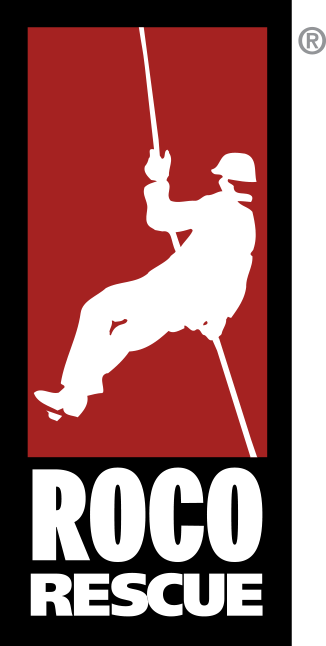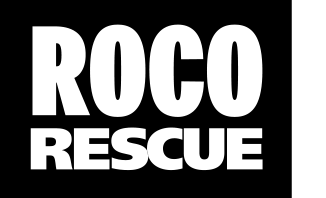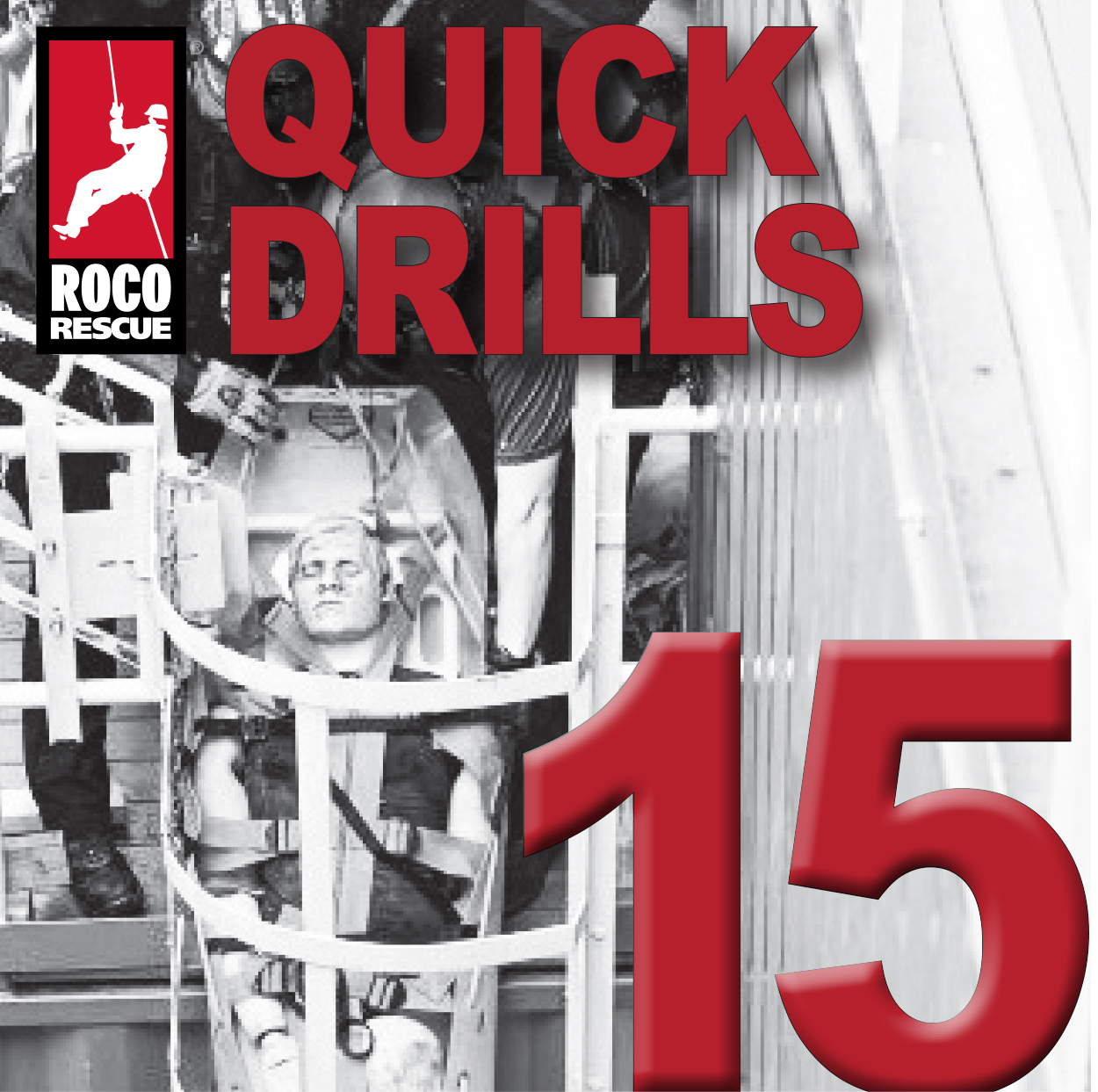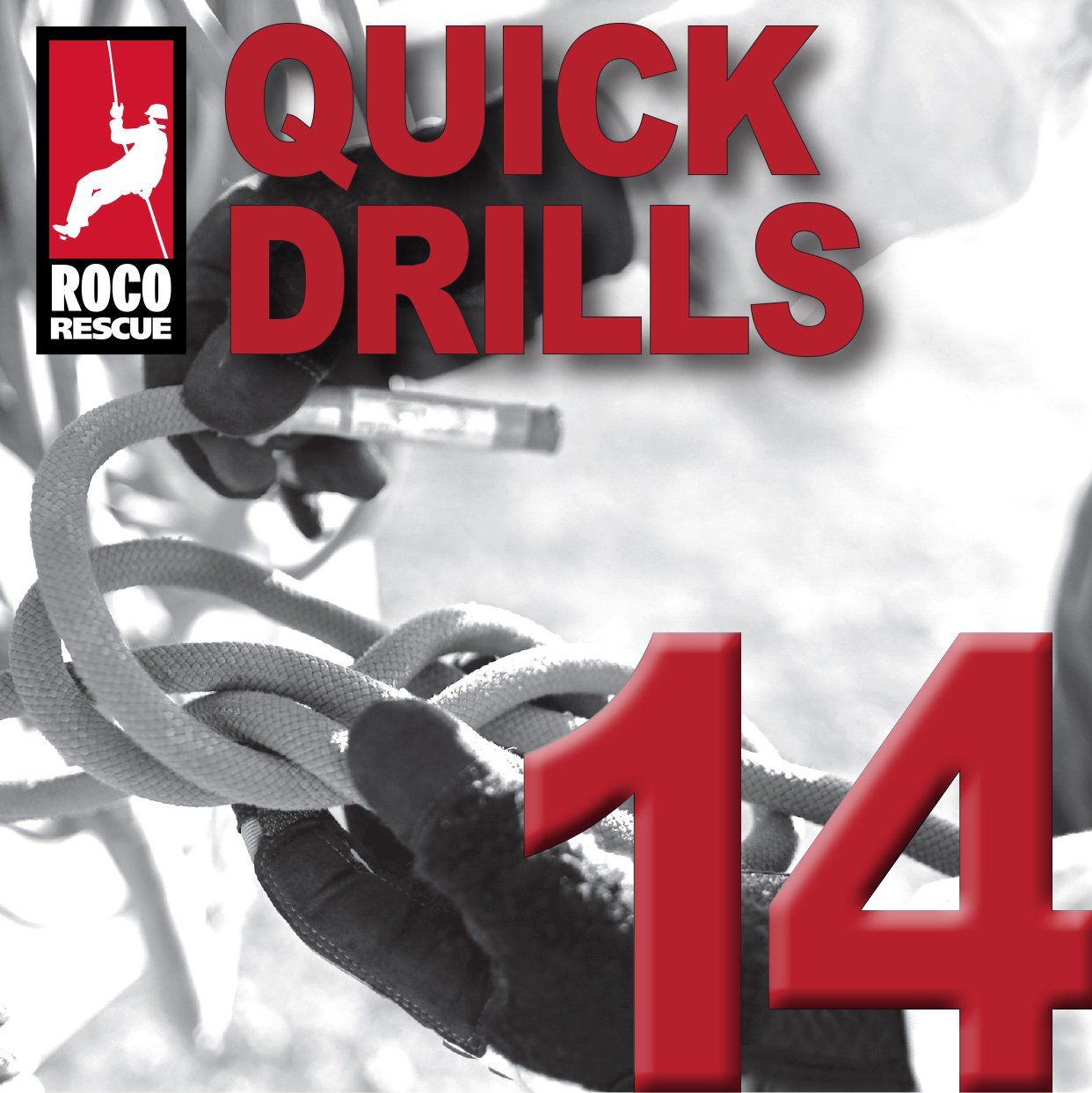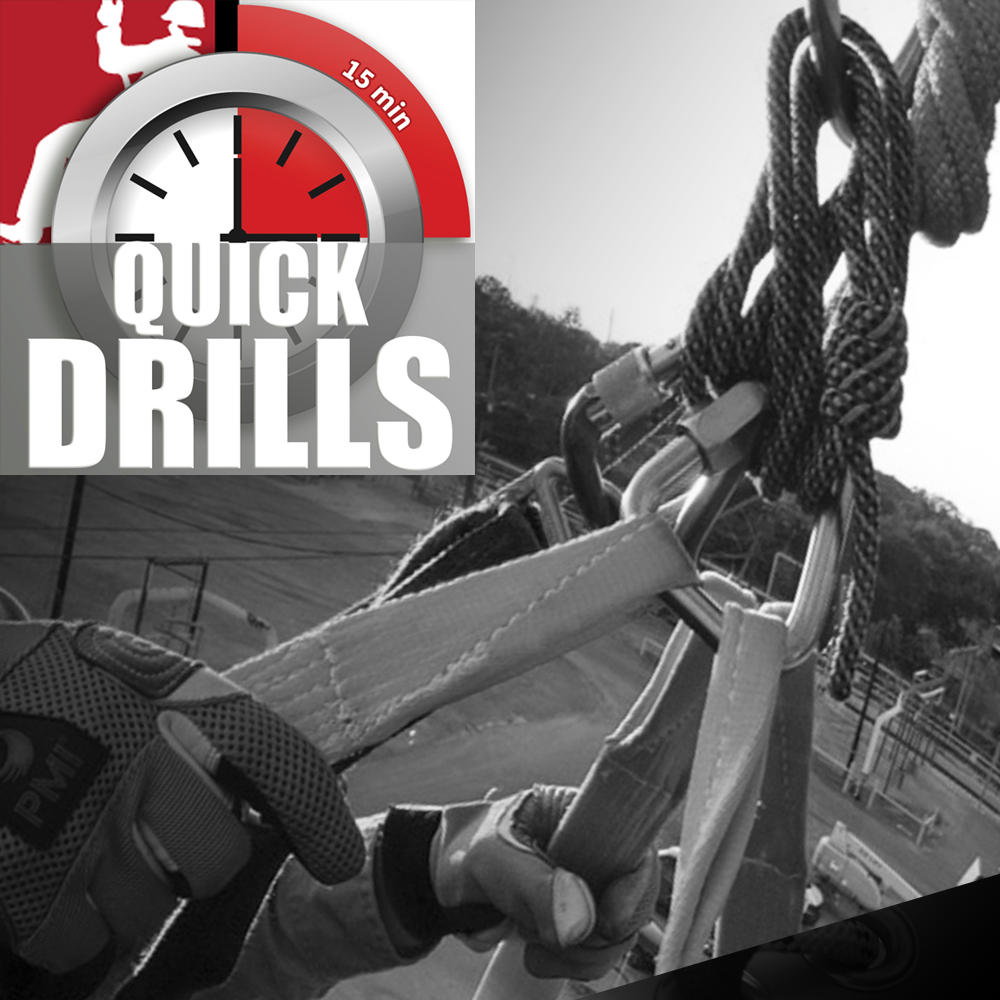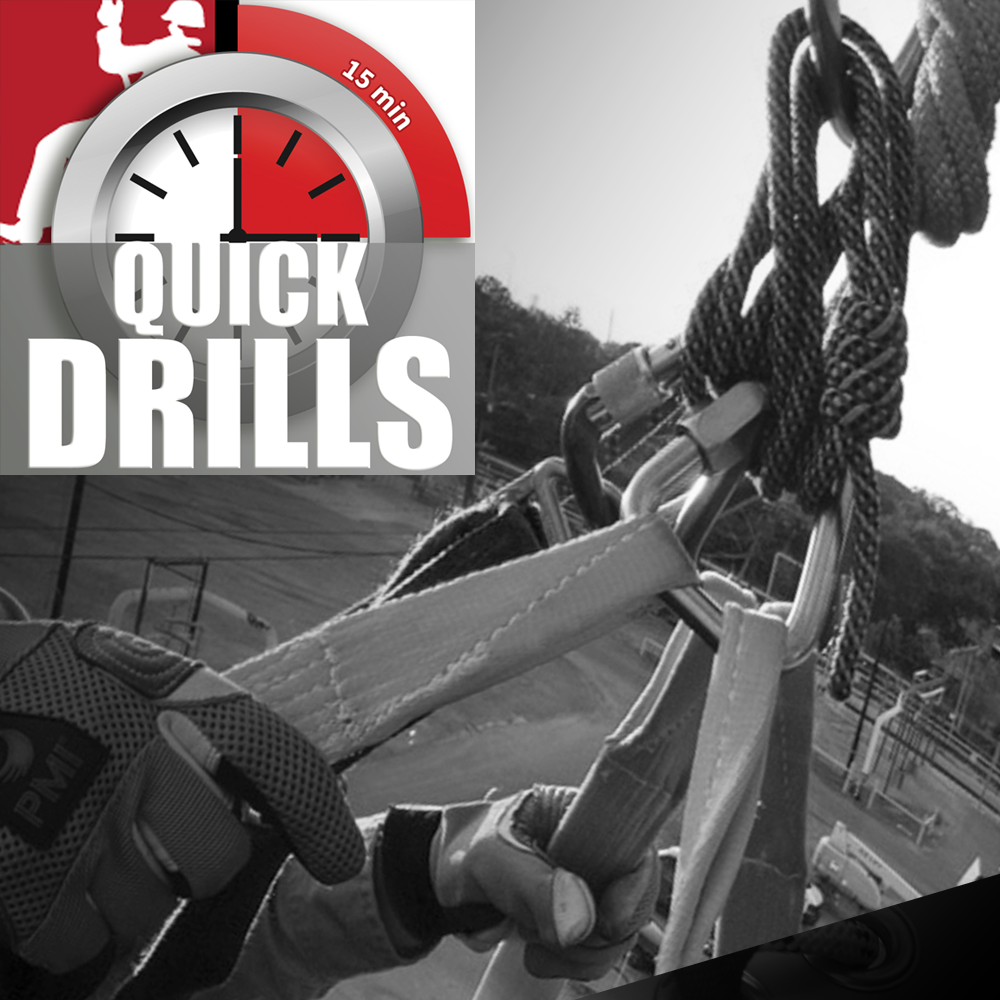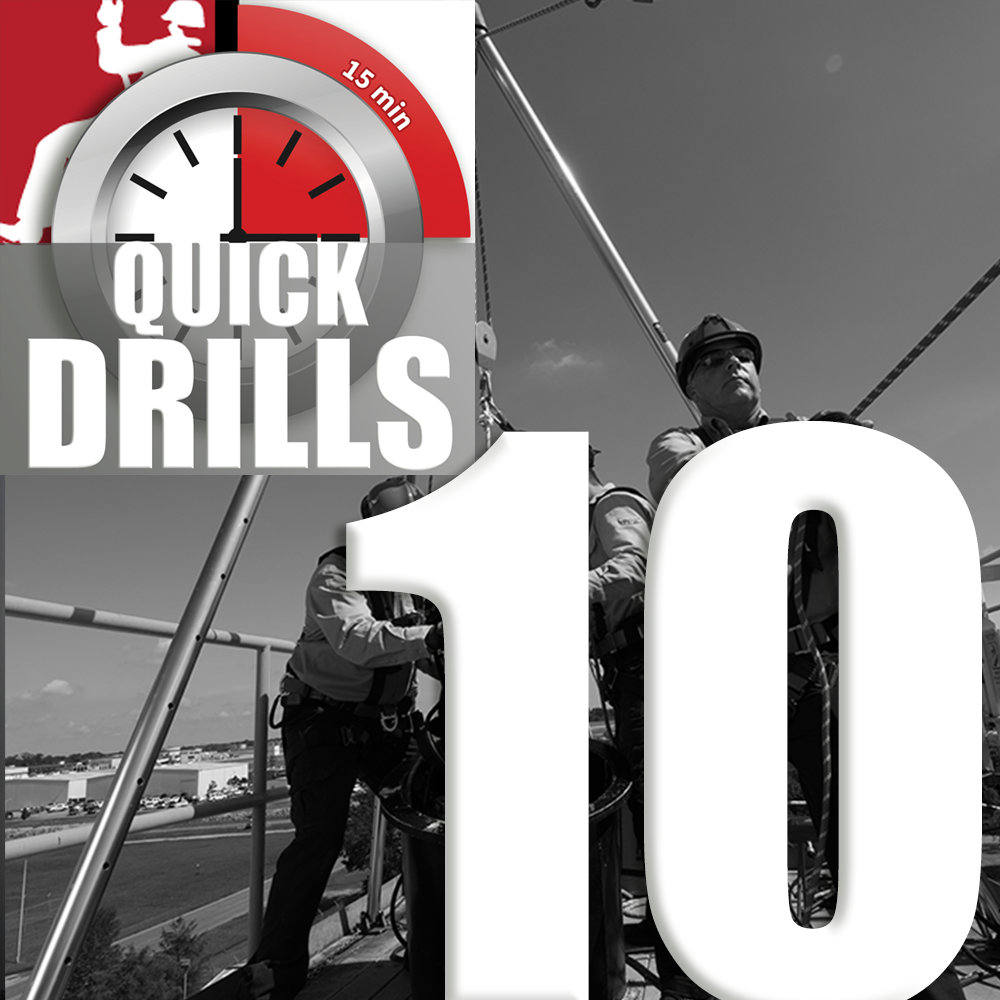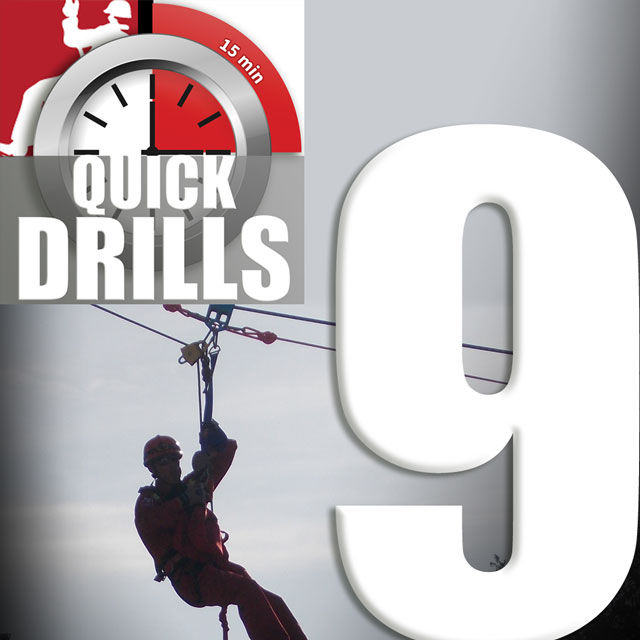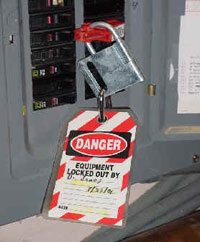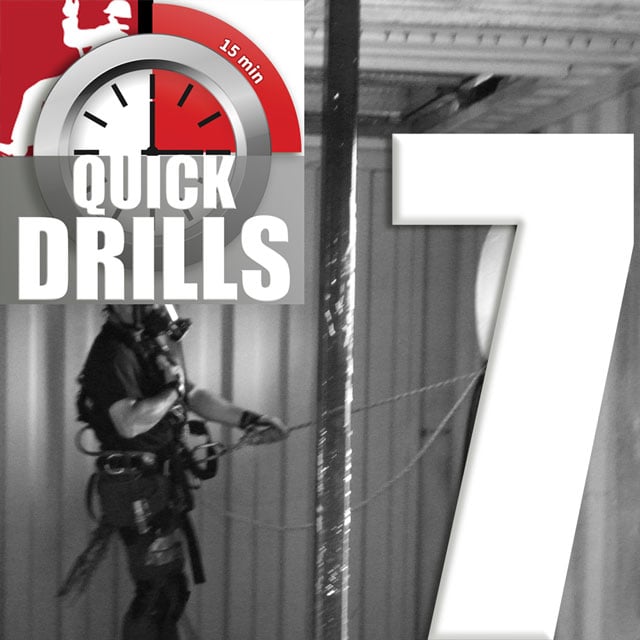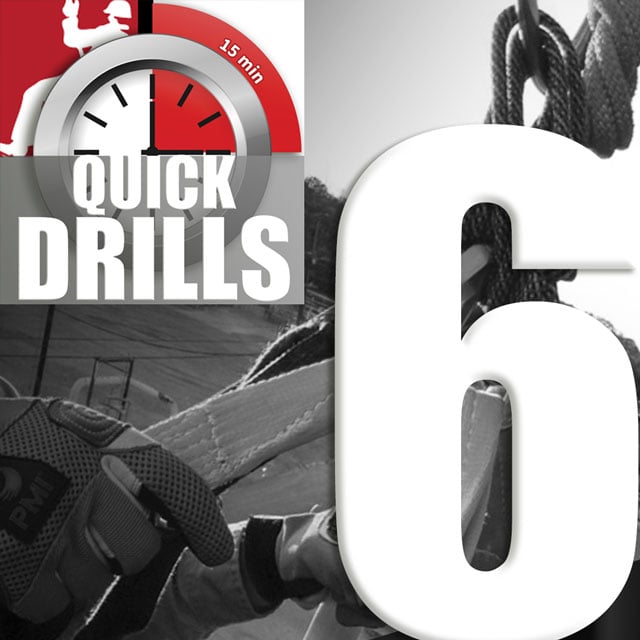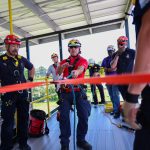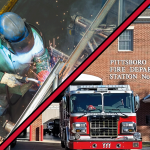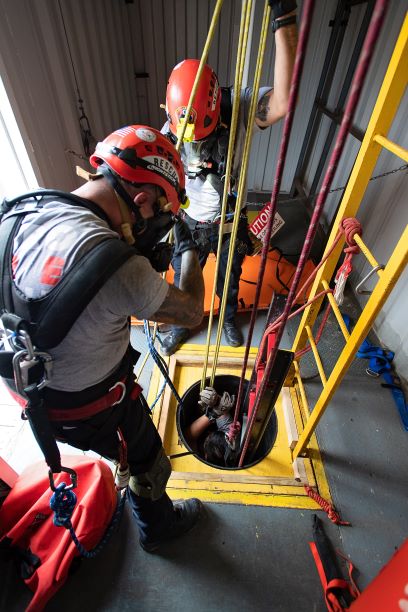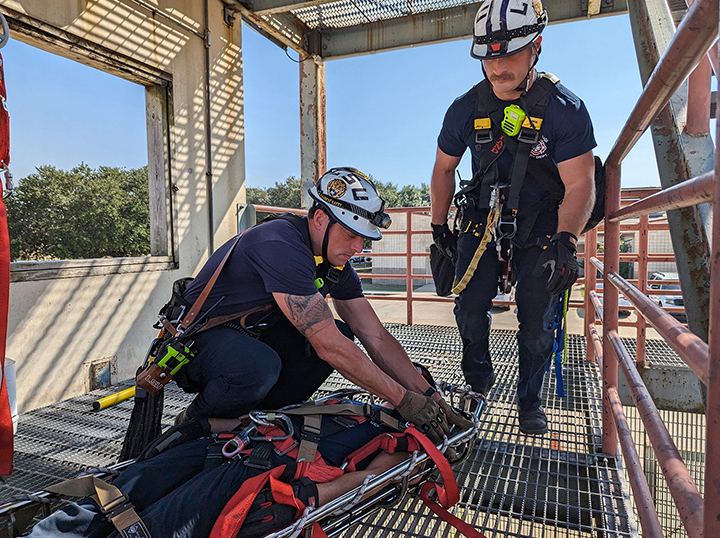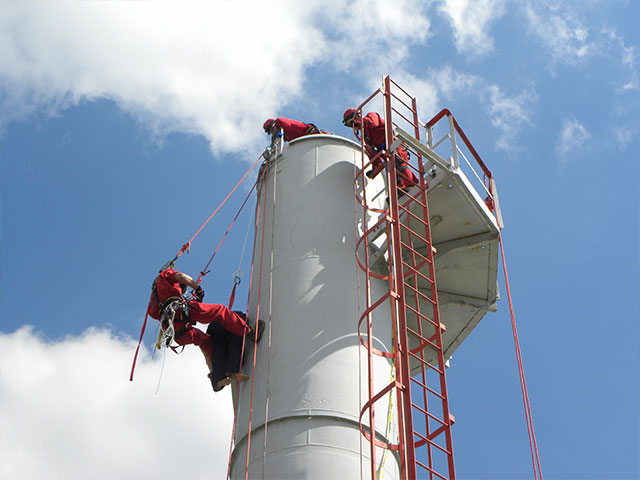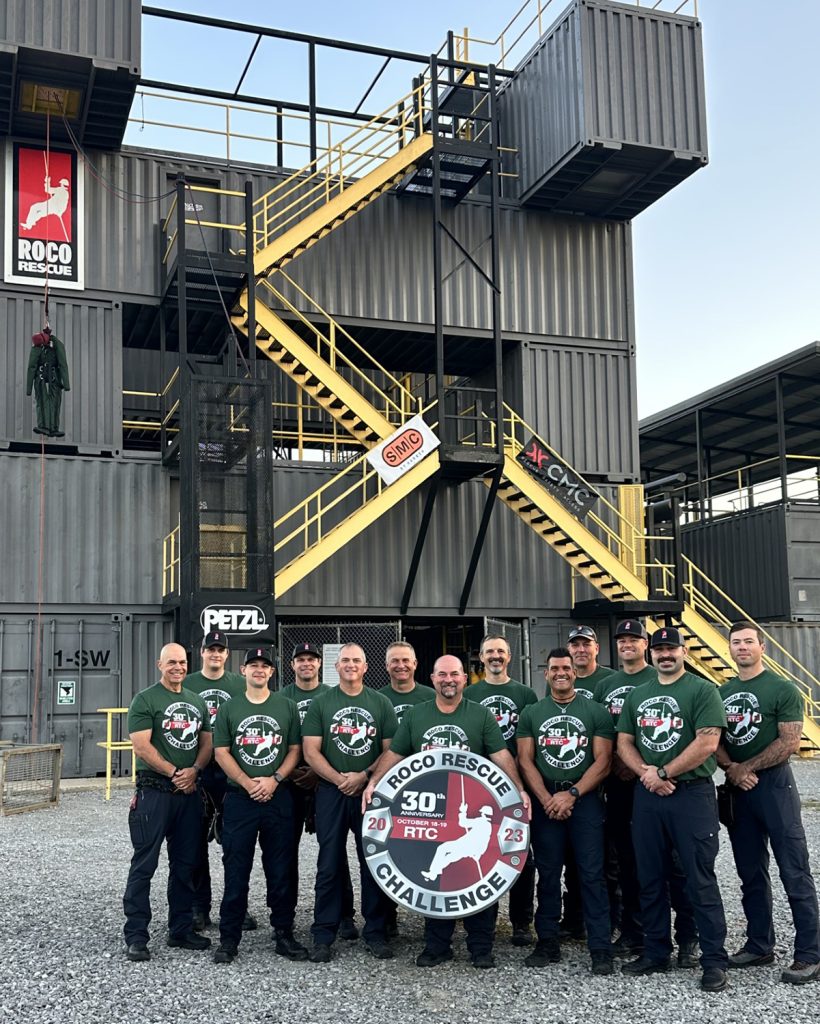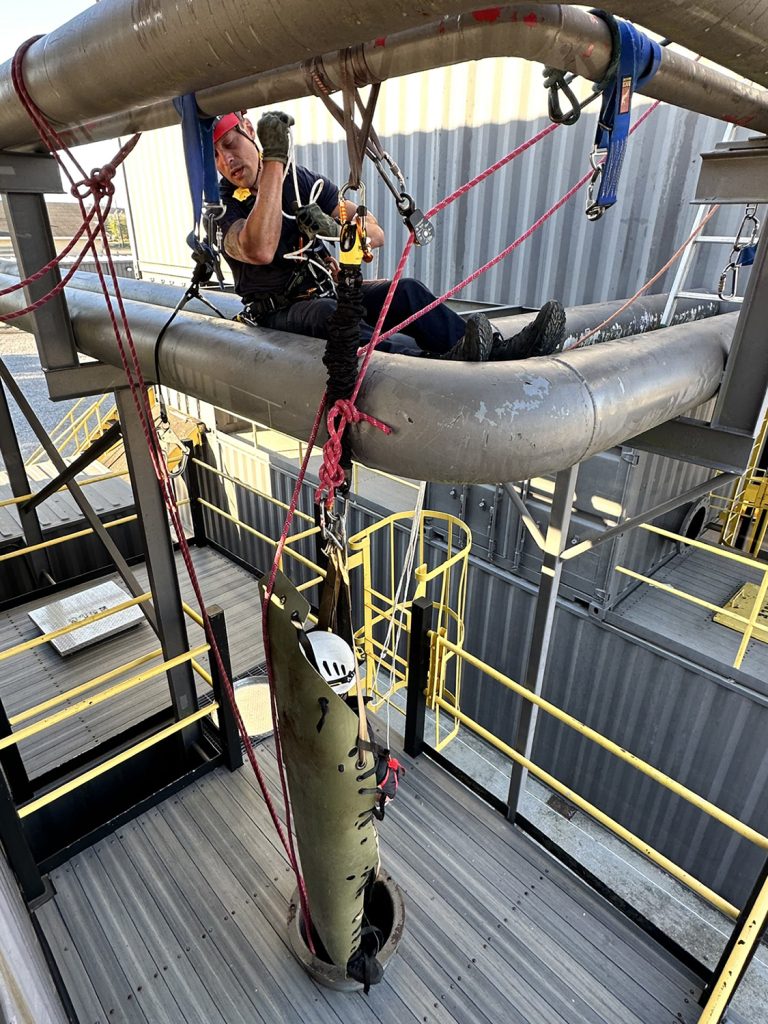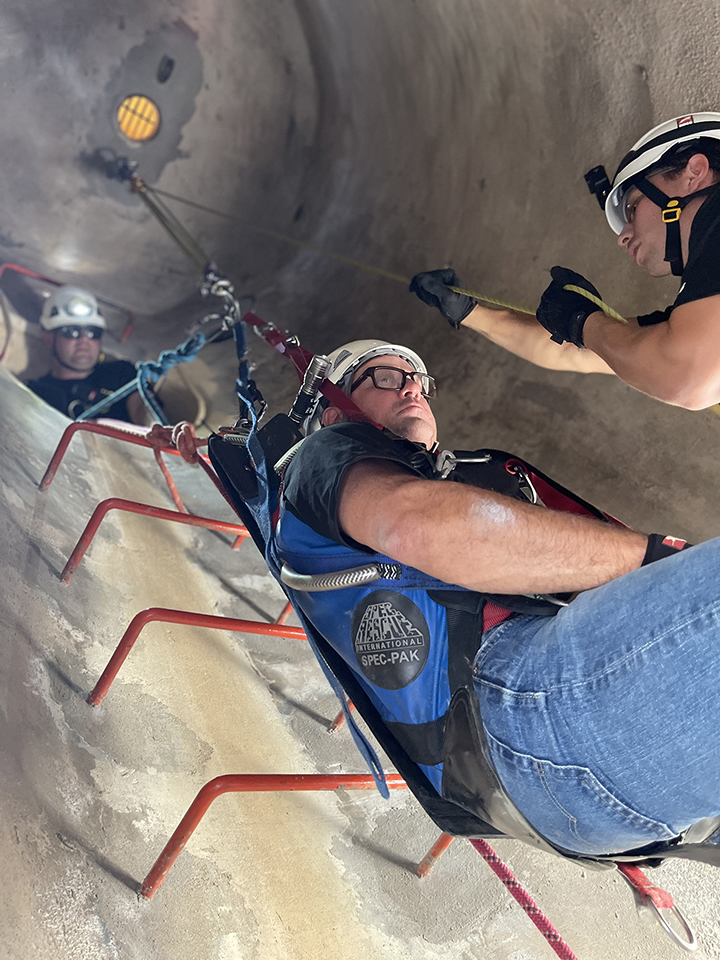Quick Drills
September 15, 2022
Each participant would be given all necessary equipment to complete the required tasks. Depending on the number of participants, and equipment on hand, evaluators would build the desired number of lanes to operate. Once participants have had a chance to look over the equipment, and ask any questions, evaluators would give each a set time...
Read More
July 15, 2022
Blindfolded personnel would be required to identify a knot by feel and touch only and then tie the knot in a separate piece of rope. The concept would be to have 5 knots pre-tied on rope shorts, and 5 additional rope shorts for personnel to tie. Each member would have to feel the knots that...
Read More
November 3, 2016
Many rescue scenes (and teams) are plagued by confusion because of too much communication. And, if you have three people assigned to do a task, each one will have his or her own idea of how it should be done, where the system should be anchored, etc. Many times the discussion that follows eats up...
Read More
June 15, 2016
Quick, efficient patient packaging is a crucial factor in every rescue. Generally, if spinal injury is suspected, two rescuers will be needed to properly manage and package the patient for movement. In the drill below, keep time for the patient packaging portion. Then inspect for errors and correct as needed. Discuss patient handling and review...
Read More
April 11, 2016
One of the skills that separates a good team from a great team is patient handling; how quickly and efficiently a patient can be packaged for movement. Patient packaging and lashing is one area that can save a lot of time during a real rescue. This becomes even more critical when rescuers are wearing SCBA. Good patient packaging...
Read More
February 8, 2016
Rescue tripods provide a mobile and rapidly deployable high-point anchor option for confined space emergencies. Like any piece of equipment, however, it has its limitations. It is important that your team becomes proficient with this tool in training to ensure fluid deployment during a live rescue.
Read More
November 30, 2015
Due to their relative simplicity, belay systems rarely see the dedicated training that is often given to the other elements of rescue, such as mechanical advantage or patient packaging. Just because you can rig a 540 Belay Device or tie a Munter Hitch does not necessarily mean you are proficient in their use.
Read More
August 27, 2015
Maintain Proficiency with Ground Station Drills The Petzl ID is a great device. However, as with any device or technique, if you don’t practice, you risk forgetting some of the basic principles and functions involved in its proper use. Using quick and easy-to-set-up ground stations will help to keep proficiency levels up while reducing risk,...
Read More
April 8, 2015
Maintaining proficiency when building rescue systems requires skills and experience – that’s why regular practice is critical! With continued practice in keeping it safe and simple (KISS), rescuers can learn to be more efficient with their equipment as well as in selecting and setting up rigging anchors. Proficiency with this allows them to get a running start in...
Read More
January 28, 2015
At times, it may be necessary to use a single rope split between two different rescue systems. This can be useful when all ropes are being used for other purposes, such as taglines, extending anchors, etc. Being proficient in using a single rope between two systems helps spread the resources and may be more than just another tool in your toolbox. Someday, it could be crucial to a...
Read More
